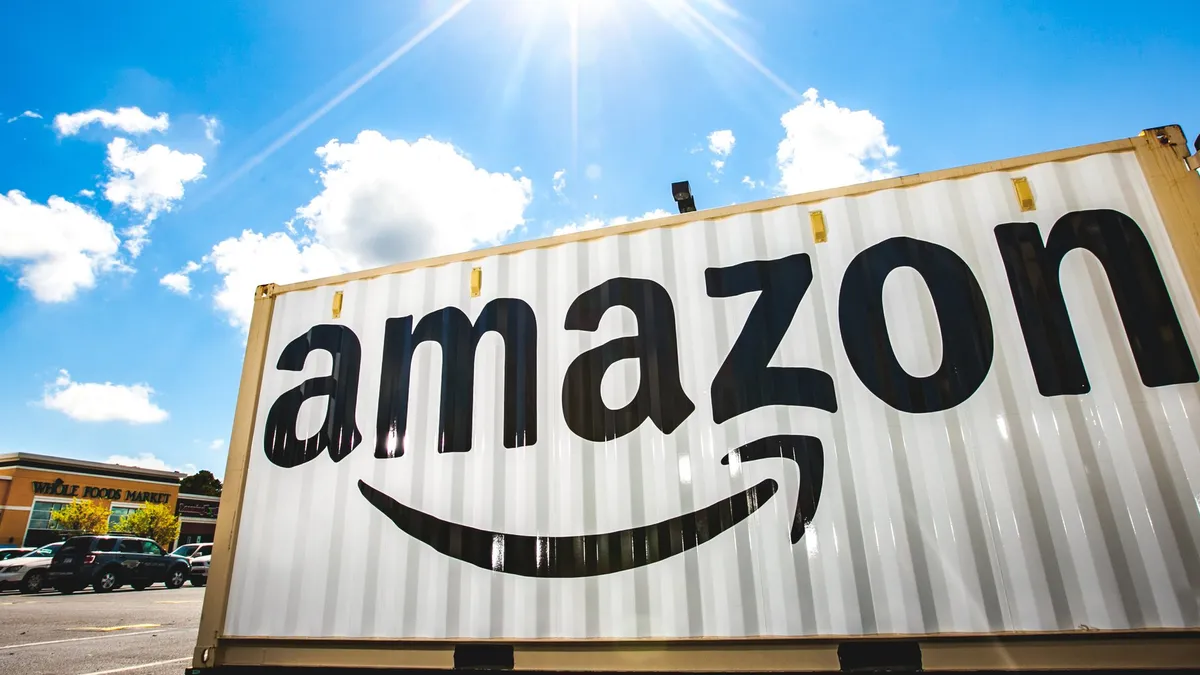Dive Brief:
- Amazon announced Monday that the Amazon Future Engineer program will fund full-year introductory and advanced placement (AP) science courses in more than 2,000 high schools across the states. The tech giant said the funds will support teachers "as they work to inspire, prepare and propel more than 100,000 students from different backgrounds to try coding — many for the first time." Access to computer science courses is through curriculum providers Edhesive and Code.org, said Amazon.
- Amazon Future Engineer was launched in November 2018 as a four-part, childhood-to-career program aimed at public Title I schools in underserved communities, according to the company. The program is part of Amazon's $50 million investment in computer science and STEM education and it covers a digital curriculum for students, professional development for teachers, tutorials, preparatory lessons, live online seven-day-a-week support for teachers and students, and no-cost membership for program participants with AWS Educate, Amazon's global initiative providing students with resources for skills-building in cloud technology.
- Citing the U.S. Bureau of Labor Statistics, Amazon said that by 2020, 1.4 million computer-science-related jobs will be available, but that only 400,000 computer science graduates will have the right skills to apply for those jobs. Computer science is the fastest-growing STEM field, but only 8% of STEM graduates and a small minority from underprivileged backgrounds earn a computer science degree; and students from underprivileged backgrounds are up to 10 times more likely to study computer science in college curriculum if they've taken AP computer science in high school.
Dive Insight:
Training and upskilling are becoming business practices of choice for a growing number of employers, especially those in the tech industry who face an acute skills shortage. An example is Amazon's Upskilling 2025 training investment, a $700 million investment aimed toward 100,000 workers during the next six years. The investment represents a shift in focus from training primarily highly skilled workers to those on every level in the organization, including transportation and fulfillment-center employees.
Other tech companies have also reached into high schools to try and prop up the talent pipeline. As an antidote to the tech skills shortage, IBM created its own technical high school, Pathways for Technology Early College High School (P-TECH), in 2011 in Brooklyn, New York. P-TECH, much like Amazon Future Engineer, provides training for low-income communities. Many of its students pursue degrees at the New York City College of Technology and other universities in New York State.
Amazon, IBM and other tech companies are essentially providing free training to a non-employee base. Training non-workers may seem like an investment with no tangible returns for employers, when, in fact, the investment is in preparing people who may one day be employees for future tech roles and widening the talent pool of skilled candidates.











